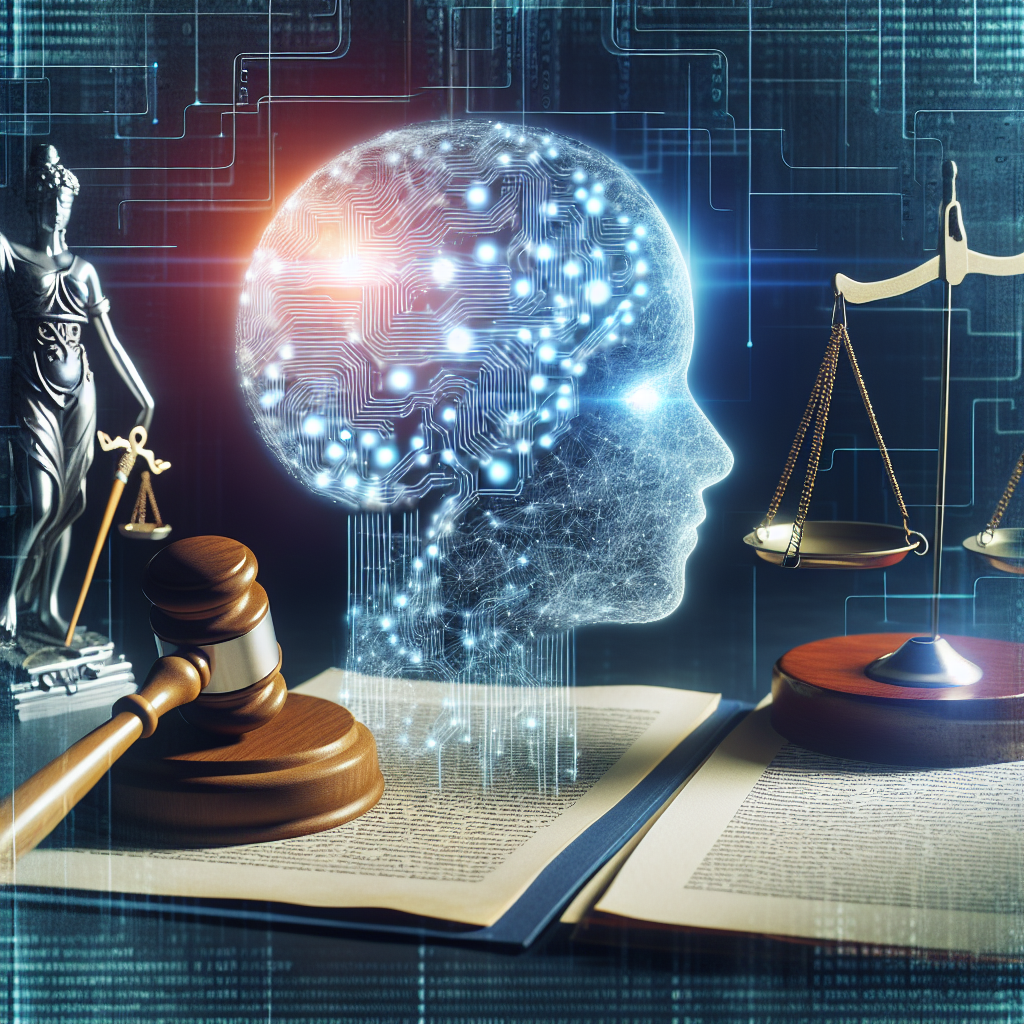Artificial Intelligence (AI) has revolutionized many industries, and the legal sector is no exception. By leveraging AI technologies, law firms and legal departments can streamline processes, increase efficiency, and deliver better outcomes for clients. From contract analysis to legal research, AI is transforming the way legal professionals work. In this article, we will explore how AI is being used to streamline legal processes and address some frequently asked questions about AI in the legal industry.
AI in Legal Research
One of the most time-consuming tasks for legal professionals is conducting research. AI-powered tools can help streamline this process by quickly analyzing vast amounts of legal data and providing relevant insights. For example, AI can be used to search through case law, statutes, and regulations to find relevant information for a particular case. This can save lawyers hours of manual research and help them build stronger arguments based on comprehensive data analysis.
AI in Contract Analysis
Another area where AI is transforming the legal industry is in contract analysis. AI tools can quickly review contracts, identify key clauses, and flag potential issues or risks. This can significantly speed up the contract review process and help lawyers ensure that contracts are compliant and in line with their clients’ interests. By automating the analysis of contracts, legal professionals can focus on higher-level strategic tasks rather than spending hours poring over documents.
AI in Due Diligence
Due diligence is a critical process in legal transactions, such as mergers and acquisitions. AI can be used to streamline due diligence by quickly reviewing large volumes of documents and identifying relevant information. This can help legal professionals identify risks and opportunities early in the due diligence process, allowing for more informed decision-making and faster deal closures. By leveraging AI for due diligence, law firms can improve the efficiency and accuracy of their work while reducing the time and resources required for due diligence tasks.
AI in Predictive Analytics
Predictive analytics is another area where AI is making a significant impact in the legal industry. By analyzing historical data and patterns, AI tools can help legal professionals predict outcomes in litigation, identify potential risks, and optimize case strategies. This can help lawyers make more informed decisions, manage client expectations, and improve the overall success rate of their cases. By using AI for predictive analytics, legal professionals can better anticipate challenges and opportunities, allowing them to provide more strategic and effective legal advice to their clients.
FAQs about AI in the Legal Industry
Q: How is AI different from traditional legal research methods?
A: AI-powered tools can analyze vast amounts of data in a fraction of the time it would take a human researcher. This allows legal professionals to quickly access comprehensive information and insights, leading to more informed decision-making and better outcomes for clients.
Q: Is AI replacing human lawyers?
A: AI is not meant to replace human lawyers but to augment their capabilities. By automating repetitive tasks and providing valuable insights, AI can help legal professionals work more efficiently and effectively, allowing them to focus on higher-level strategic tasks and provide better services to their clients.
Q: Is AI in the legal industry secure?
A: Security and data privacy are critical concerns in the legal industry, and AI tools must comply with strict regulations to ensure the confidentiality and integrity of client data. Law firms and legal departments should carefully vet AI providers and ensure that their tools meet industry standards for security and compliance.
Q: What are the potential challenges of implementing AI in legal processes?
A: Some potential challenges of implementing AI in legal processes include the initial cost of investment, the need for training and upskilling of staff, and the potential resistance to change from traditional legal practices. However, the benefits of AI in streamlining legal processes and improving efficiency far outweigh these challenges.
In conclusion, AI is transforming the legal industry by streamlining processes, increasing efficiency, and delivering better outcomes for clients. From legal research to contract analysis and predictive analytics, AI is revolutionizing the way legal professionals work. By leveraging AI technologies, law firms and legal departments can improve their productivity, accuracy, and overall effectiveness. As AI continues to advance, the legal industry will undoubtedly see even more innovations and improvements in the years to come.

